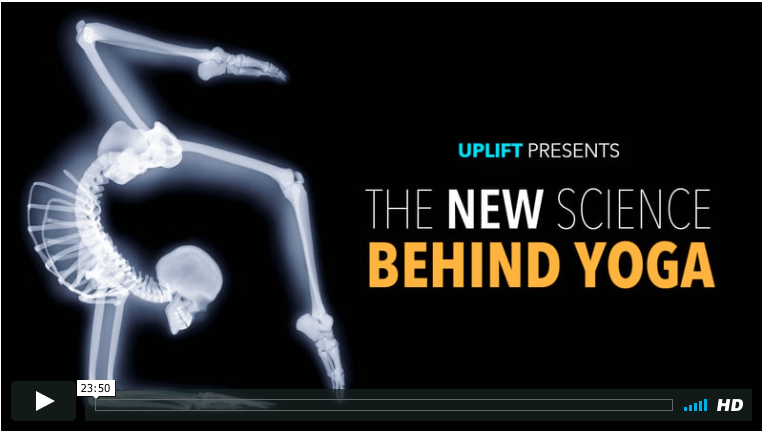The New Science Behind Yoga

The follow-up to the original film “The Science of Yoga”
 Last year we shared with you the short film “The Science of Yoga” which featured interviews with a number of leading thinkers and researchers in yoga, meditation and the mind-body connection, including Michael de Manincor of The Yoga Institute.
Last year we shared with you the short film “The Science of Yoga” which featured interviews with a number of leading thinkers and researchers in yoga, meditation and the mind-body connection, including Michael de Manincor of The Yoga Institute.
Uplift have now released a second film “The New Science Behind Yoga”. This once again brings together the leading minds in the field to discuss how the benefits of yoga are now being validated by mainstream medicine and western science.
The effects of yoga on mental health
The film includes commentary from Michael de Manincor on the results from his research into the effects of yoga on mental health:
“We have an extraordinary capacity today to measure the most minute, subtle changes in energy that we didn’t even have 10 or 20 years ago.”
“One of the reasons that I’ve gotten back into the science, back into doing research into this area, is because people talk about the extraordinary benefits that yoga has brought to their lives, and in some cases quite literally saved their lives, and that’s a very personal experience. To bring some science to do clinical trials and bring some evidence to that, may lead to policy change, it may lead to reconsideration of what people who are having a hard time can do for themselves.”
“The whole methodology of yoga itself has come from a scientific approach. It’s all about trying something, observing the effects, and then trying it again and observing whether you get the same effects. So it really is a scientific methodology in and of itself.”
“We ran a clinical trial to evaluate the benefits of a yoga practice for people who suffer from either depression or anxiety. We found a 33% reduction in the measure of the severity of depression, a 26% reduction in the severity of anxiety. We found a 34% reduction in psychological distress.”
“We also found improvements in a number of areas of psychological functioning. That included a 13% improvement in a measure of resilience, a 20% increase in a global measure of mental health and mental functioning and a 12% increase in what’s called the flourishing scale, it’s a measure of how well people see they’re going in their lives, psychologically and emotionally. Each of those measurements were statistically significant compared to the control group in each of those measures. They either continued or improved further after an additional six weeks.”